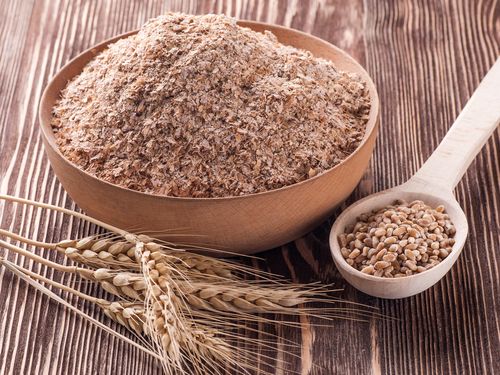If you've ever taken an antibiotic, you've likely been warned by your doctor and pharmacists not to drink alcohol. But do you know there are a whole bunch of foods you shouldn't mix with certain medications?
Here's the definitive list you should keep handy for whenever you need a new prescription, but as always, consult with your doctor before making dietary or medication changes.
Advertisement
Grapefruit
This tasty, tangy citrus fruit is dangerous when taken with medications for lowering ccholesterol and blood pressure. Grapefruit juice also changes the way the body metabolizes antihistamines, birth control, thyroid-replacement drugs and stomach acid-blockers. American Family Physician explains grapefruit contains a certain compound, not found in other citrus fruits, that alters the characteristics of those medications.
This tasty, tangy citrus fruit is dangerous when taken with medications for lowering ccholesterol and blood pressure. Grapefruit juice also changes the way the body metabolizes antihistamines, birth control, thyroid-replacement drugs and stomach acid-blockers. American Family Physician explains grapefruit contains a certain compound, not found in other citrus fruits, that alters the characteristics of those medications.

Shutterstock
Black licorice
Although delicious, the main ingredient in natural black licorice can reduce the body's potassium and lead to an irregular heartbeat. This is especially dangerous for people taking high blood pressure medicines, notes the Cleveland Clinic.
Although delicious, the main ingredient in natural black licorice can reduce the body's potassium and lead to an irregular heartbeat. This is especially dangerous for people taking high blood pressure medicines, notes the Cleveland Clinic.

Shutterstock
Wheat bran
Insoluble fiber, such as wheat bran, can slow the absorption of the heart medications digoxin, digitalis, digitek and lanoxin. People on this type of medication should not eschew insoluble fiber altogether. It is much too important to a healthy diet. Rather, Today's Geriatric Medicine advises taking the medication one or two hours before or after eating.
Insoluble fiber, such as wheat bran, can slow the absorption of the heart medications digoxin, digitalis, digitek and lanoxin. People on this type of medication should not eschew insoluble fiber altogether. It is much too important to a healthy diet. Rather, Today's Geriatric Medicine advises taking the medication one or two hours before or after eating.

Shutterstock
Milk
Dairy does not mix with antibiotics. Today's Geriatric Medicine warns that the calcium in milk, yogurt, cheese and other dairy products prevents the absorption of antibiotics such as ciprofloxacin.
Dairy does not mix with antibiotics. Today's Geriatric Medicine warns that the calcium in milk, yogurt, cheese and other dairy products prevents the absorption of antibiotics such as ciprofloxacin.

Shutterstock
Bananas
High amounts of potassium can cause irregular heartbeat and heart palpitations when taken with ACE Inhibitors such as captopril, enalapril, lisinopril and moexipril, explains the U.S. Food and Drug Administration. Potassium can also interact negatively with diuretics, such as bumetanide and metolazone. Instead of avoiding potassium, take the medication one hour before meals and monitor your body for symptoms.
High amounts of potassium can cause irregular heartbeat and heart palpitations when taken with ACE Inhibitors such as captopril, enalapril, lisinopril and moexipril, explains the U.S. Food and Drug Administration. Potassium can also interact negatively with diuretics, such as bumetanide and metolazone. Instead of avoiding potassium, take the medication one hour before meals and monitor your body for symptoms.

Shutterstock
Alcohol
When taken with antihistamines, alcohol can cause increased drowsiness. Things become a lot more dangerous when alcohol is mixed with acetaminophens and anti-inflammatory drugs, such as aspirin and ibuprofen. The FDA warns against using these drugs at all if you are prone to having more than three alcoholic drinks per day. The combination can cause severe liver damage and stomach bleeding.
When taken with antihistamines, alcohol can cause increased drowsiness. Things become a lot more dangerous when alcohol is mixed with acetaminophens and anti-inflammatory drugs, such as aspirin and ibuprofen. The FDA warns against using these drugs at all if you are prone to having more than three alcoholic drinks per day. The combination can cause severe liver damage and stomach bleeding.
Advertisement

Shutterstock

